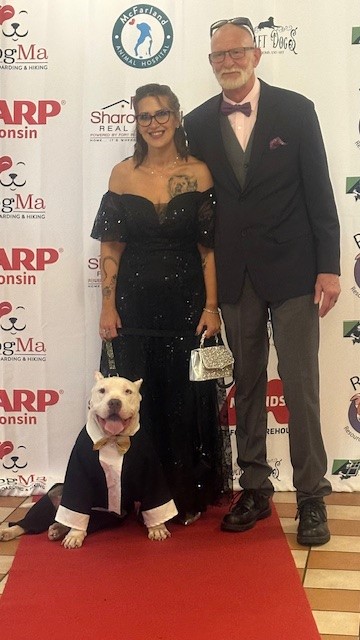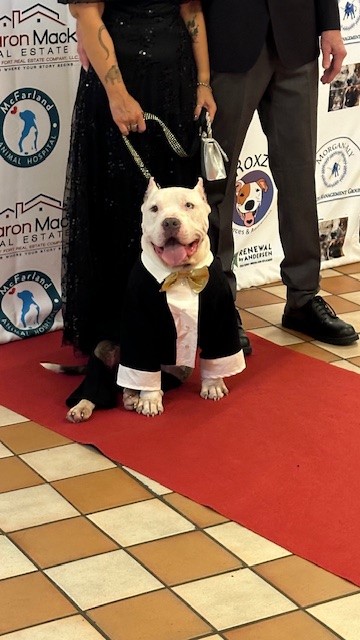AARP Hearing Center

By Amber Miller, Assoc. State Director of Outreach
AARP Wisconsin had the pleasure of being a sponsor of Albert’s Dog Lounge Gala on Saturday, August 3, 2024, with a focus on bringing community and rescue together. Albert’s Dog Lounge Gala, a non-profit established in 2017 and located in Whitewater, WI, is a foster-based rescue focused on providing loving homes to seniors, special needs, and hospice dogs. They help dogs in need from overcrowded shelters and local families who can no longer care for their pets.
In 2023, an 8yr old dog named Clyde was surrendered to Albert’s Dog Lounge because his owners lacked the resources to care for him. Clyde had almost no fur and was suffering from infections all over his body, and unfortunately his owners couldn't afford his medication.
After adopting Clyde, the founders of Albert's Dog Lounge, Mandy and Derren Lewis, established a valuable resource for pet owners in their community, honoring the adoption of this wonderful pup—and that is called Clyde’s Closet, a free pet pantry that offers a variety of items to support pets and their devoted owners.
During the gala, we also got to see the wonderful world premier of Clyde’s rescue story published by The Dodo, serves up emotionally and visually compelling, highly sharable animal-related stories and videos to help make caring about animals a viral cause. To view Clyde’s full video, click HERE.

To learn more about Alberts Dog Lounge or Clyde’s Closet, please visit www.albertsdoglounge.org
Did You Know?
According to the results of a University of Michigan-AARP poll, pet owners say their furry friends help them de-stress and stick to a routine. Pets also provide many people with a sense of purpose.
These findings are the latest from the National Poll on Healthy Aging, sponsored by AARP and Michigan Medicine, the University of Michigan’s (U-M) academic medical center. According to the survey, 55 percent of older adults ages 50 to 80 have at least one pet. Dogs are the most popular (owned by 68 percent of respondents), followed by cats (48 percent) and then small pets such as birds, fish and hamsters (16 percent). To read this full report, please click HERE.































































